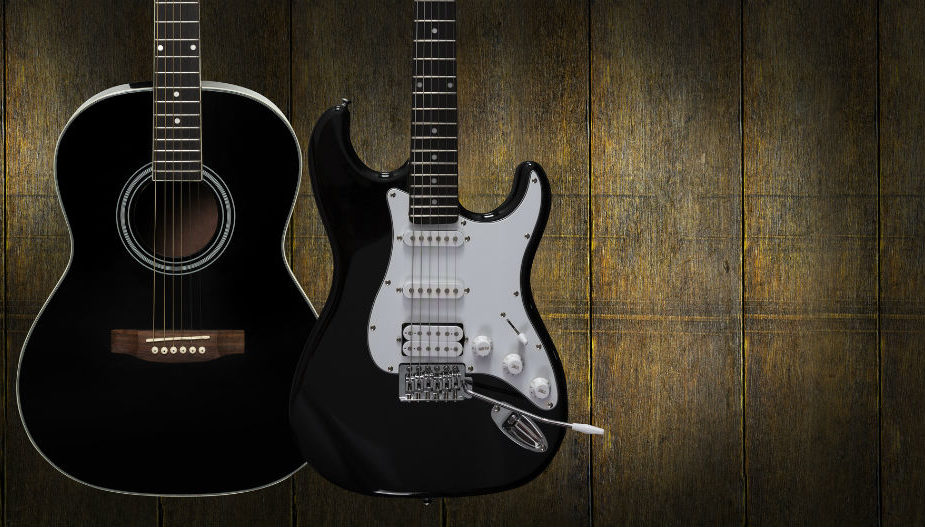
What to Know about Learning Acoustic and Electric Guitar
Learning to skillfully play a guitar, or any instrument for that matter, can be one of the most satisfying artistic endeavors that one will achieve. But this is certainly not an easy achievement. There will be times when you want to quit, or feel that learning to play this instrument will just not happen for you. The good news is that everyone feels this way at some point and it is not a reality, just a feeling.
But there will be a variety of important things to keep in mind when you are learning guitar that can alter the experience. Here is what you need to know about learning the acoustic or electric guitar.
Acoustic Guitar
The acoustic guitar projects its sound without the need for external amplification. Nevertheless, there are plenty of acoustic guitars that can be played with an electric amplification and are especially popular.

Pros Of Learning On An Acoustic:
- You can begin playing your guitar right away, you will not need the support of an amplifier, electrical hookups or anything else.
- If you can play a piece of music on an acoustic guitar, you will be more than likely to play the same piece on an electric guitar. This is because an acoustic guitar requires a higher level of skill and technique. But the same can’t be said about those who begin their learning on an electric guitar.
- Acoustic guitars have a soft and soothing tone that is quite different from the harder distorted tone of the electric guitar. This makes it easier to practice your craft around other people without disturbing the peace.
Cons Of Learning On An Acoustic Guitar:
- Acoustic guitars use heavier strings. This can make it a bit more difficult for a beginner to learn fingering as a bit more technique and strength will be required. In the beginning, this can cause mild to severe pain in the fingertips and can be discouraging for beginners.
- Acoustic guitars are widely considered to be fragile, at least when compared to electric ones.
- The fretboards of an acoustic guitar are wider than what you will see on an electric guitar this adds to the difficulty they pose to the beginner.
- Strings on acoustic guitars produce a certain buzzing sound because of their increased gauge.
- It can be more difficult to play barre chords on an acoustic guitar because of their higher gauge strings.
Electric Guitar
The electric guitar requires an electric amplification to effectively deliver their sound. This is accomplished through the electromagnetic “pickups” that capture the vibrations of the strings and convert them into electrical signals that are sent to the amplifier.

Pros Of Learning On An Electric Guitar
- Electric guitars are easier to learn and practice for many people. This is largely due to their smaller bodies, thinner fretboards and low gauge strings.
- Amplifiers and the pickups will take care of delivering the sound effectively, so the guitarist only needs to focus on the more basic aspects of learning.
- Electric guitars use softer lighter strings than their acoustic counterparts. This makes it easier to learn, easier to hold barre chords and learn and apply many other techniques.
- Electric guitar amps are often equipped with a headphone jack that will allow the practice to be done in complete silence.
- While the acoustic guitar is capable of a variety of special effects, there are not nearly as many as can be applied to the use of an electric guitar. Learning new techniques and effects is part of what makes the electric guitar fresh and exciting.
Cons Of Learning On An Electric Guitar
- You will have to get an amplifier and cables to use the electric guitar.
- Finding the right tone can be tough at first, this is even more true for beginners who may not have a clue of what they are looking for. Finding the wrong tune can be very discouraging and cause the learner to quit.
- Just because someone can play the electric guitar, this doesn’t mean they will have any experience applicable to the acoustic guitar.
No matter if you choose to begin your practice with an electric or acoustic guitar, the important thing to remember is that no one was born a natural musician. It takes years of dedicated practice to acquire the skills and techniques to master a guitar and then more time to apply these skills in a performance.
If you are looking for some helpful advice on how to choose the right instrument for your needs, feel free to contact us.









